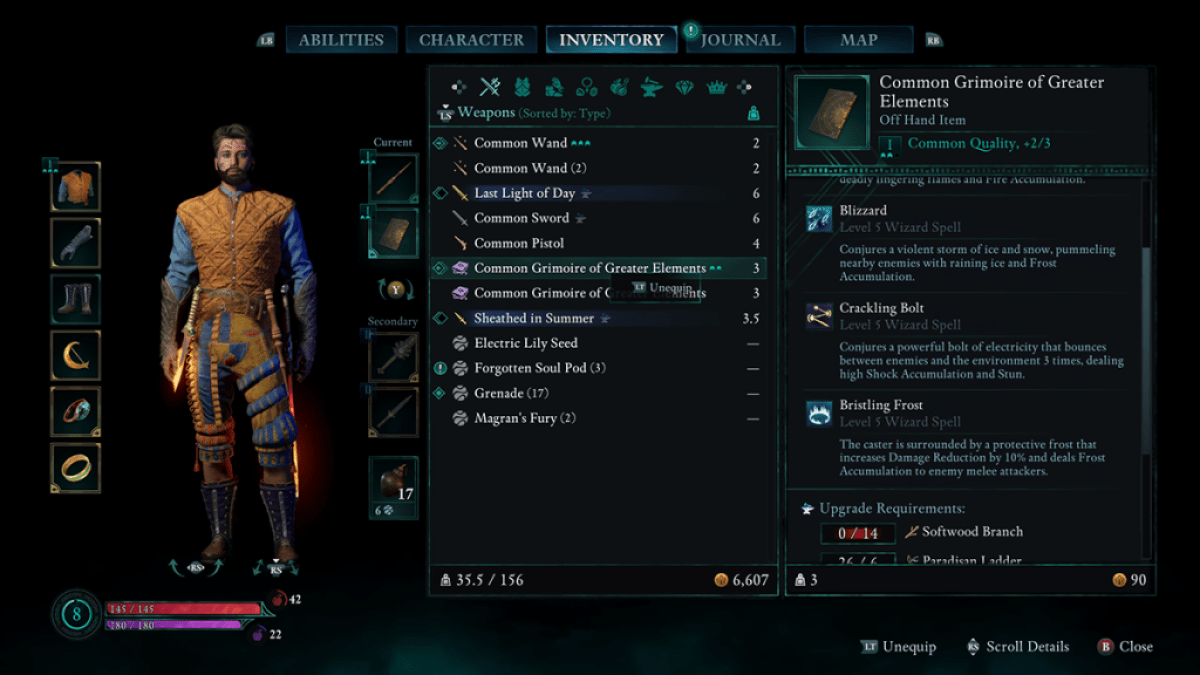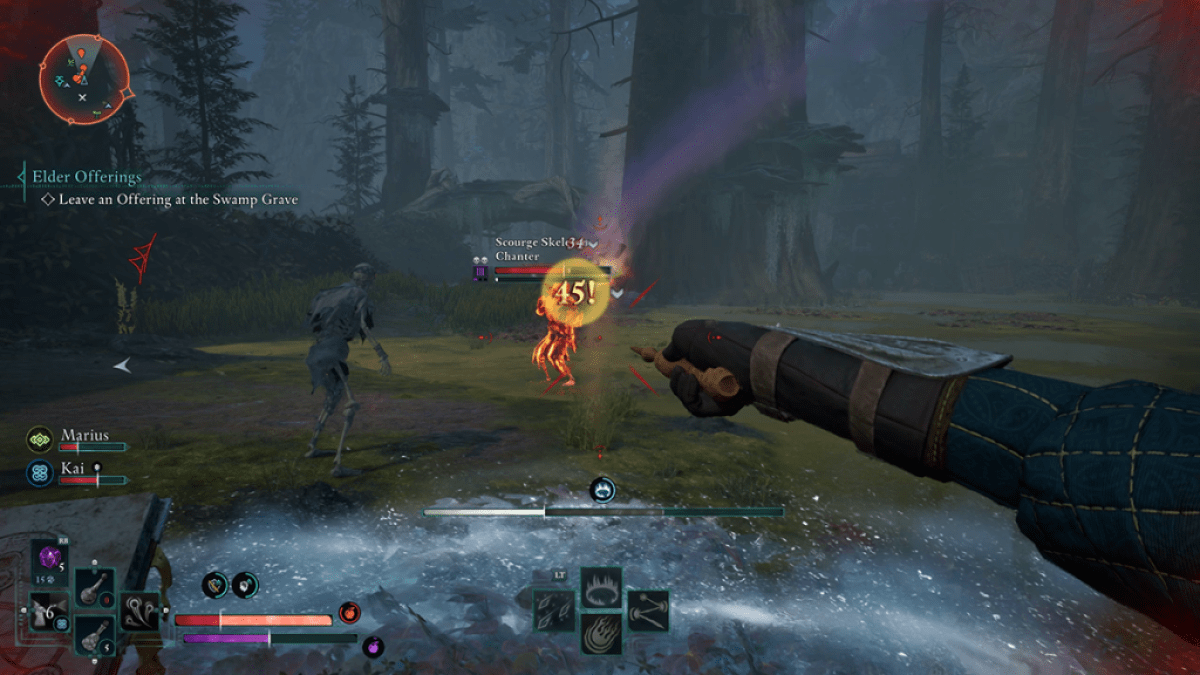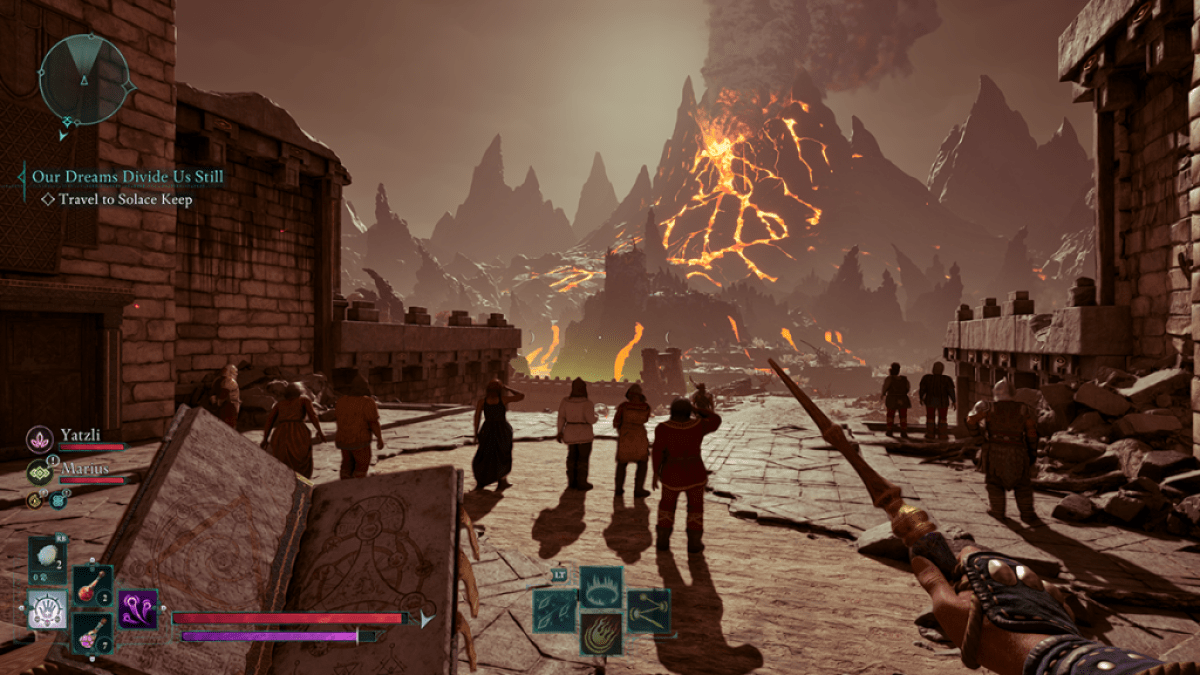Avowed is a fine game that gets a lot right and feels tighter than you’d expect from a Western open-world game. I was, however, severely disappointed by how its gear system makes the overall pace of adventure go from perfect during its first few hours to erratic.
Getting loot and player progression right in RPGs is tricky. You don’t even need dev experience to know that. Just play enough video games that belong to the wider genre (and/or tabletop alternatives), and you’ll quickly notice those aspects can easily go off the rails and make the larger experience either a bit of a slog or a joke. Many times, it’s all about finding the right system for the game’s size and central premise. In the case of Avowed, I think Obsidian Entertainment chose… poorly. Somehow, it often becomes far more frustrating than Elden Ring and its close relatives in a completely different way.
In this action RPG with a bigger focus on story and characters over content bloat, it was reasonable to expect a streamlined progression path that simply offered some degree of true flexibility. The perks/skills system does exactly that, and it does it well. Hell, even “respeccing” is a smooth and almost required process to maximize the Envoy’s power level by the time the late game is reached. On the other hand, the weapons and armor system and how upgrades change their effectiveness in combat is a bit of a nightmare the more you play.

Avowed is a game that puts player agency and exploration front and center. This might sound familiar, but its defining trait is that it feels genuinely handcrafted and restrained in many ways, from the quest design to how the actual world is structured. You can loot plenty of hidden corners and dungeons, but it’s not one of those “forever” RPGs that just run for more than 50 hours even if you stick to the main path.
Perhaps this is why the MMORPG-y approach to loot and upgrades feels so odd. Sure, a “proper” RPG, no matter its style, needs real stats and a solid experience of developing a build over many hours. Robust loot and upgrade systems, depth aside, should carry the player forward and support their power fantasy and provide roadblocks. It’s a difficult curve to get totally right, as I said before.
In Avowed, enemies are tiered depending on the area they’re found in. You can walk in any direction as long as you’ve unlocked the larger “world zone” and run into them whenever, but you’re not meant to hang around areas with foes with skulls on their health bars. That’s no bueno. If you thought the Living Lands were going to be lively and as unpredictable as Bethesda’s average open-world behemoth, think again. You might be free to go wherever you please, but Avowed doesn’t want you to. Dark Souls and its spiritual successors also do this, but they’re blunter when it comes to teaching players valuable lessons. More importantly, they also provide much better tools aimed at overcoming their obstacles.
Related: All Treasure Map Locations in Avowed

This shouldn’t be a problem. Plenty of single-player video games with numbers that go up do this just fine. Level gating is a thing for a reason. Oblivion’s whole approach to this matter was leveling up almost every enemy alongside you, and that sucked. Even The Outer Worlds, Obsidian’s immediate predecessor to Avowed, handled it fine. Why does it feel a bit wrong all of a sudden?
It could be a matter of simply crunching some key numbers, collecting player data, and putting out a solid enough patch, for all I know. But the thing is that I really struggled past the second area and well into the late-game sections. Everything and everyone that wanted to kill me and my pals was spongier, and my weapons, even when upgraded to the required rarity/level, felt like they just weren’t enough. Suddenly, the breezy (albeit adequately difficult) first stretch of the game had transitioned into more sluggish trips that forced me to clear almost every optional quest, task, or bounty I came across for very little payoff.
All I could think of was: “What the hell, Shadow of the Erdtree somehow felt far less rough to get through than this.” The solution is simple though: Collect or craft enough branches of that one type that doesn’t even spawn anymore, so head over to the area you left behind hours ago and disrupt any sense of narrative progression you’ve gained since then. It just doesn’t feel like great game design, does it? Conversely, FromSoftware at its meanest almost always defines a clear difficulty curve that makes quickly bouncing back from failure a matter of skill and self-teaching instead of a grind that doesn’t fit its games’ worlds (though you can slowly farm low-level enemies if you want to).

ARPGs like Diablo IV typically handle this by burying the player in loot and materials. You gotta put the work in, but you needn’t hunt for mats for too long. Other open-world games lean more toward survival-like mechanics that are directly supported by the right world design. Avowed has none of that. It’s no Skyrim because it doesn’t want to riff on that formula. As daunting as it can look at first, it’s a focused adventure that encourages moving quickly from one place to the next.
This is the sort of “intentional friction” that sinks so many video games while elevating others. In my opinion, Avowed partially fails to provide a good sense of progression and evolution. The combat is fantastic and enemy movesets are far richer than in many other titles, but it all often runs into the “numbers and color” wall that likes to put you on the back foot even after doing the required homework. At some point, however, it simply dissipates, which makes me think the balance is simply out of whack through a good chunk of the game. It makes you wonder about the likely incredible amount of testing every new FromSoftware banger goes through.
Again, it’s probably wrong to start pointing fingers at certain systems or mechanics (unless they clearly are broken), no matter your level of experience with this sort of game. RPGs are especially difficult to fine-tune. I guess it’s just odd to have Obsidian stumble on this element of an otherwise notable game after fully figuring these things out 15 years ago while racing against the clock.
Avowedis available now on PC and Xbox.







